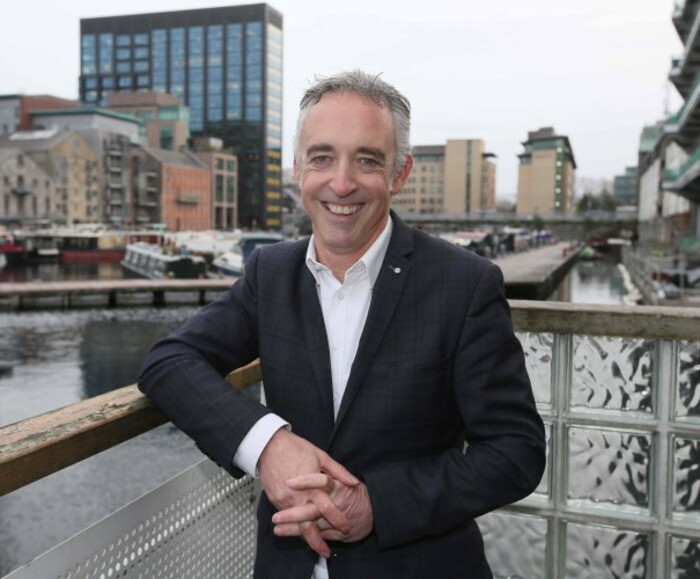'Not fit for purpose': Why startups want Ireland's flagship investor scheme overhauled
The EIIS programme offers tax breaks for startup backers – but the industry says it’s not up to task.
THE GOVERNMENT’S TAX-RELIEF scheme for startup investors needs to do a better job of rewarding people who take risky bets on young companies.
That’s according to stakeholders in the Irish startup scene, who are hoping the government will fix shortcomings in the Employment Incentive and Investment Scheme (EIIS) in next month’s budget.
EIIS is a scheme that provides tax relief to people who back companies that are up to seven years old.
Nearly 2,000 people invested over €90 million in companies under the EIIS scheme in 2015 but reports late last year claimed a drop in investments since then.
The scheme was intended to encourage investment in indigenous companies, but according to Halo Business Angels Network national director John Phelan it’s “not fit for purpose”.
Phelan took aim at the overall structure of the scheme, as well as the length of time a deal can take to get approved. He said that he has encountered companies that were waiting several months for approval.
Meanwhile, John O’Connor, chief executive of Waterford startup Kollect, told Fora that it applied for the EIIS a year and a half ago – and is still yet to get approved.
“It’s moving really slowly,” he said. “It’s cloak and daggers, you don’t really know where you stand at any time. You know you’re in the funnel, but no one is telling you if you are approved from the Revenue.”
 John O'Connor (centre)
John O'Connor (centre)
He added that the process of filling out the forms was cumbersome, and the approval delay could be a hindrance in the startup’s talks with investors.
“We can’t say that (we’re approved). We’re telling (investors) we might be EIIS-approved and they’re asking, well, you either are or your aren’t,” he said.
A spokesperson for Revenue said that due to the “complexity of the scheme” since the Finance Acts of 2015 and 2017, there has been an increase in the volume of correspondence in each application, which has prolonged the time to process them.
The spokesperson said that Revenue anticipates that the “majority of claims will be processed in advance of the income tax filing deadlines”.
Investor Ian Lucey said that many startups he’s backed have applied for EIIS but the process is “long and cumbersome”.
He applied for the scheme five weeks ago for his own golf club development, however he’s yet to receive word. The failings meant the scheme was failing to attract new investors, unlike the UK’s more attractive offering.
“What you have in Ireland is the people who were going to invest (anyway) are taking advantage of the tax break. It’s definitely not bringing any new people in,” he said.
“The biggest challenge that we have is the tax breaks aren’t great.”
Rates
Under the current scheme, an investor is entitled to 30% in income tax relief in the first year and 10% in year four for putting up to €150,000 in any year into a qualifying SME.
While the 30% rate is the same for the UK’s equivalent scheme, it carries a one-year cap of £1 million, as well as other benefits.
Sarah-Jane Larkin, director general of the Irish Venture Capital Association (IVCA), agrees that better rates are needed to incentivise investing in riskier startups.
 Sarah-Jane Larkin
Sarah-Jane Larkin
In its pre-budget submission, IVCA has called for a preferential 50% rate for companies that are less than three years old or are pre-revenue. Larkin said this would attract investors to younger, more speculative ventures.
The scheme has been more popular among mid-sized companies and asset-backed companies, which are generally safer bets, she explained.
The 50% rate would “funnel more of that money towards startups, which are by their nature higher risk”.
If an investor is presented with the same rates for a young company and a firm that’s mid-sized and making revenue, they’ll always choose the latter, Larkin said.
“The risk-reward ratio currently, as it stands, just doesn’t reward people to invest more in startups.”
Both Larkin and HBAN’s Phelan also take issue with the requirements that startups need to meet regarding the business plan in their application.
It currently requires startups to foresee in their plans that they will need follow on funding within seven years if they want to avail of EIIS again.
“I think the bigger issue is that if you wanted to have another go at raising a second round of EIIS, you must have stated it in your original business plan when your company was maybe a year or two years old,” Larkin said.
“It’s very difficult for companies in year one or year two to really be able to say with certainty that they’re going to need to raise more money within seven years.”
Phelan added that Ireland should also look at culling capital gains tax for EIIS investors as further incentive.
He said EIIS should follow the UK’s lead here, a position that’s also held by not-for-profit organisation TechIreland.
“In the UK there’s zero capital gains tax if you do have an exit, but here you get charged 35%,” Phelan said.
Friends and family
Another failing with the scheme, according to Larkin, is that EIIS is only open to private independent investors and not “connected” individuals, which means that founders’ family members are explicitly excluded.
She said that this “makes no sense”, as new startups often depend on connected people to attract their first investment.
“It’s really not ideal that those individuals who would bootstrap a company at the very start can’t be offered the same tax relief as a completely unconnected investor,” she said.
However this issue is complicated by EU rules – the General Block Exemption Regulations – that prevents aid schemes from providing relief to anyone with close connections to the company, ruling out family and friends.
“I really think the government needs to look at the whole area of family and friends and figure out a way for the EIIS scheme to meet the European requirements and fund companies locally, or they need to look at a different mechanism outside of the EIIS.”
Economic future
With Brexit and other threats like EU tax harmonisation looming on the near-horizon, Ireland’s economic model of attracting foreign investment is under threat, Larkin said. That only heightened the need to support startups and SMEs.
“Now really isn’t a good time for the indigenous sector to be starved of funding,” she said.
HBAN’s Phelan said the EIIS should be “depoliticised”. He said that, as it stands, the scheme presents the image of the government supporting startups , while in reality it has been ineffective.
 John Phelan
John Phelan
“The idea (should be) it’s putting money into risky companies, not putting it into something that’s asset-backed or property,” he said.
“If the government says it’s about rewarding people for putting their money to work in a high-risk sector then people need to be rewarded for that. If people don’t see it like that then they’ll just go off and invest in property.”







